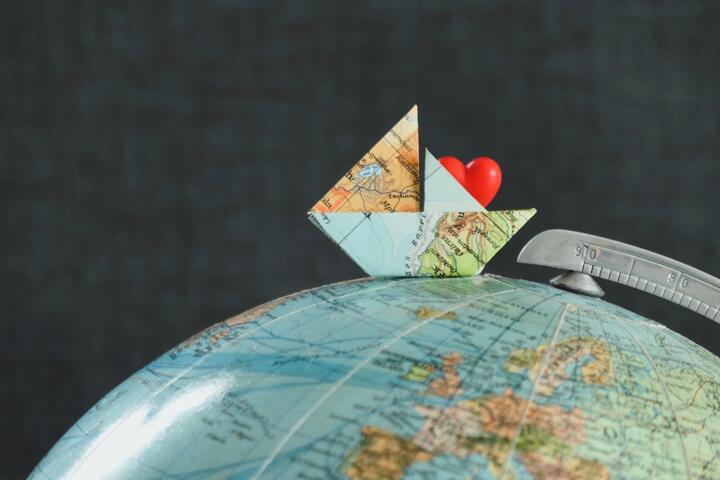Traveling is more than just visiting new places—it’s an opportunity to experience cultures, create memories, and recharge your mind and body. Yet, planning a trip can be stressful, especially when balancing budgets, logistics, and personal preferences. How do you make the most of your journey without overspending or feeling overwhelmed? This guide offers practical tips and step-by-step strategies for smarter, more enjoyable travel.
Why Smart Travel Planning Matters
Planning isn’t just about logistics—it directly affects your experience and expenses:

-
Budget Efficiency: Avoid unexpected costs and maximize the value of your money.
-
Time Optimization: Reduce stress by organizing itineraries, accommodations, and transportation in advance.
-
Safety and Comfort: Research ensures you stay in safe areas and have access to necessary amenities.
-
Enhanced Experiences: Thoughtful planning allows for unique, immersive activities rather than rushed sightseeing.
In short, good planning makes travel enjoyable, stress-free, and more rewarding.
Step 1: Set Your Goals and Budget
Before booking flights or hotels, define your objectives:
-
Trip Purpose: Are you traveling for relaxation, adventure, culture, or business?
-
Length of Stay: Determine how many days you can dedicate to travel.
-
Budget Allocation: Include transportation, accommodation, meals, activities, and souvenirs.
-
Flexibility vs. Structure: Decide whether you want a fixed itinerary or more spontaneous exploration.
Practical Tip: Use a simple spreadsheet or travel app to track your expected expenses, adjusting for realistic costs in your destination.
Step 2: Choose Your Destination Wisely
Selecting the right destination sets the tone for your trip:
-
Seasonal Considerations: Check weather patterns to avoid extreme conditions.
-
Local Events: Festivals, holidays, or peak tourist seasons can affect prices and availability.
-
Accessibility: Consider travel time, visa requirements, and transportation options.
-
Safety and Health: Research current safety advisories and necessary vaccinations.
Example: Traveling to Japan during cherry blossom season offers beautiful scenery but requires early planning and higher costs.
Step 3: Find Affordable and Comfortable Accommodation
Where you stay can make or break your experience:
-
Hotels vs. Rentals: Hotels offer convenience and services, while rentals provide more space and flexibility.
-
Location Matters: Staying near public transport or key attractions saves time and money.
-
Amenities: Ensure essentials like Wi-Fi, kitchen access, and laundry are available.
-
Booking Strategies: Compare prices on multiple platforms, check for discounts, and read reviews.
Pro Tip: Booking in advance often secures better rates, but last-minute deals can work for flexible travelers.
Step 4: Plan Transportation Efficiently
Getting around efficiently is crucial to a smooth trip:
-
Flights: Use fare comparison tools and set price alerts. Consider alternative airports or flexible dates.
-
Local Transport: Research buses, trains, and ride-sharing options for convenience and cost savings.
-
Rental Vehicles: Ideal for remote areas or flexible schedules, but factor in insurance and fuel.
-
Walking and Cycling: Explore urban areas while saving money and getting exercise.
Tip: A mix of transportation modes often balances cost, convenience, and experience.
Step 5: Organize Your Itinerary
A flexible yet structured itinerary helps maximize your time:
-
Highlight Key Attractions: Identify must-see landmarks, museums, or natural sites.
-
Group by Proximity: Plan activities in the same area to reduce travel time.
-
Include Downtime: Allow for rest, meals, and spontaneous discoveries.
-
Backup Plans: Have alternatives in case of bad weather or closures.
Example: A week in Rome could include sightseeing in the morning, local markets at noon, and leisurely evenings exploring neighborhoods.
Step 6: Save Money Without Sacrificing Experience
Smart budgeting ensures more enjoyable travel:
-
Eat Like a Local: Street food and local cafes are often cheaper and authentic.
-
Use City Passes: Many cities offer passes for attractions, public transport, or guided tours.
-
Travel Off-Peak: Flights and accommodations are cheaper during shoulder seasons.
-
Group or Shared Travel: Sharing costs with friends or family reduces individual expenses.
Pro Tip: Carry a reusable water bottle and snacks to avoid frequent small purchases.
Step 7: Stay Safe and Healthy
Travel safety is as important as planning logistics:
-
Travel Insurance: Protects against emergencies, lost luggage, or medical costs.
-
Health Precautions: Pack necessary medications, first-aid kits, and understand local health services.
-
Emergency Contacts: Keep phone numbers for local authorities, embassies, and accommodation hosts.
-
Cultural Awareness: Respect local customs and dress codes to avoid conflicts or fines.
Tip: Register with your embassy if traveling internationally, especially for extended trips.
Step 8: Embrace the Experience
Finally, make the most of your journey:
-
Be Present: Focus on enjoying the moment rather than over-documenting.
-
Try Local Activities: Attend cooking classes, cultural workshops, or guided tours.
-
Interact with Locals: Conversations often lead to unique insights and recommendations.
-
Reflect and Record: Journaling or photographing memories helps preserve your experiences.
Example: Travelers who join local cooking classes not only enjoy meals but also gain cultural insight that hotels rarely provide.
Conclusion
Travel is more than a destination—it’s the combination of planning, exploration, and experiences. By setting clear goals, choosing the right destination, finding suitable accommodation, planning transport, organizing an itinerary, saving money, staying safe, and immersing yourself in local culture, you can enjoy a stress-free and memorable trip.
Key Takeaway: Smart travel planning transforms a simple vacation into a seamless adventure, allowing you to explore confidently, save money, and create lasting memories. Whether it’s your first journey or your tenth, thoughtful preparation ensures every trip is as enriching as it is enjoyable.
